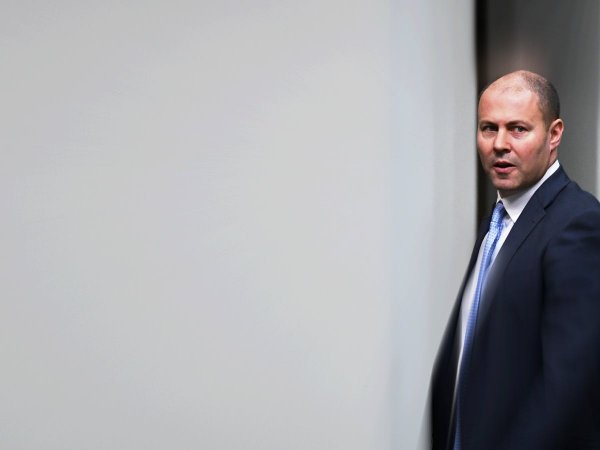In a sea of red ink and a carnage of numbers, the Treasurer Josh Frydenberg stood to outline his July Economic and Fiscal Update to the National Press Club on 24 July 2020. Australia had been rocked by bad numbers before but never like this. Going further and faster, this latest disaster was different from the Great Depression and past recessions. “This time around, women have experienced higher job losses than men,” Frydenberg said.
Indeed, the figures show clearly the added brunt falling on women. A higher proportion of women (8.1%) than men (6.2%) lost their jobs between March and April and women suffered a greater reduction in working hours, largely connected to the feminised sectors, including retail and hospitality. Women also reduced their hours of work to care for, and home school, children.
Two features of the Australian economy carry the why of it – a highly gender-segregated workforce and gender norms that enshrine a 1.5 income earner model. While not uniquely so, Australia, nevertheless, has heavily feminised industries and occupations, such as health, teaching, caring, retail and hospitality.
Into the mix, there is a direct and clear correlation between feminised sectors and low paid jobs.
Adding to the stark gender divide, there are also heavily masculinised industries, which includes construction, financial services, agriculture, as well as management and leadership positions within any industry. Into the mix, there is a direct and clear correlation between feminised sectors and low paid jobs. These jobs are also the more likely to be casualised, which leaves workers more vulnerable to being laid off, excluded from schemes, pointedly JobSeeker, and more likely to work multiple, part-time jobs.

Treasurer Josh Frydenberg.
The prevalence of the 1.5 income-earner model, relates to what is statistically the traditional Australian family, where the male is the breadwinner and the female cares for the children and works, but only part-time. That means that women’s financial return to the family unit is lower; so if hours or a job has to be sacrificed in order to take on additional caring during, it is usually the woman who does this. Across 51 OECD countries, Australia has the fourth highest rate of women working part-time – twice the OECD average.
Decisions about who will and won’t work part-time and sacrifice hours are made in households across the country and are fundamentally influenced by our tax and transfer system and the very high cost of childcare. Put simply, the interaction of higher taxes, the loss of benefits such as the childcare subsidy and Family Tax Benefit, and the out-of-pocket cost of childcare for each additional day’s work, acts as a disincentive for most families on average weekly earnings to have the secondary earner work more than three days a week. This impacts on women’s overall income, superannuation contributions and often limits women ambitions to promotions and senior positions.
Unfortunately, Australia’s number one number’s man did not follow through with practical policies aimed at reeling women back into an economy going past them.
The Treasurer’s attention to the disproportionate economic impact of the pandemic is welcome. But seeing and saying it is not the same as doing anything about it. Unfortunately, Australia’s number one number’s man did not follow through with practical policies aimed at reeling women back into an economy going past them.
A good start would be the introduction of a gender impact statement outlining the experiences of different groups within the population and, accordingly, highlighting priority areas for public investment.
This is where he and the Government needs prodding and coaching.
A good start would be the introduction of a gender impact statement outlining the experiences of different groups within the population and, accordingly, highlighting priority areas for public investment. When assessing each policy option, the Government’s role would then be to ask itself whether it improved or worsened gender inequality and, importantly, was its priority impact directed towards those most affected by the economic shock of the pandemic.

Male-dominated sectors such as construction get the lion’s share of investment.
The incorporation of this common-sense machinery into the deliberations of Government may have expanded the policy focus from the narrow, historically driven, economic recovery investment announcements that we have seen to date, with their heavy focus on male-dominated industries such as construction. Even given the Government’s stress on infrastructure building as a priority, gender strings might well have been considered to move construction, say, out of a predominantly male groove.
A perfect time to demand more of slow-to-adjust industries is when government holds the purse. It could use it to barter for, indeed mandate, more female employment, graduate positions, apprenticeships, traineeships in those industries.
Tax cuts do little to lift the employment and earning prospects of women or remove the structural disincentives to their workforce participation.
In the tax space, the Government would do well to have gender inequities clearly in mind. There have been suggestions the Government is considering bringing forward the second and third stages of the future tax cuts – which will cost nearly $121 billion. Parliamentary Budget Office estimates show that 64 cents in the dollar of these tax cuts will flow to men as they are more represented in the upper income brackets, where these stages of the tax cuts are targeted. These measures do little to lift the employment and earning prospects of women or remove the structural disincentives to their workforce participation.

Improved childcare support would provide a major economic boost.
We know from the previous recessions that the phenomenon of labour market ‘scarring’ –where long-term unemployment can dramatically reduce an individual’s ability to gain employment over their lifetime, has a lasting and devastating impact on individuals. Investment in hard infrastructure needs to be balanced by an equivalent investment in social infrastructure. Research from the UK Women’s Budget Group show that public investment in care – for both children and adults – yields 2.7 times as many jobs as an equivalent investment in construction: 6.3 times as many jobs for women and 10% more for men.
Greater subsidies for childcare fees – to allow for two free days per child per family, would be an excellent way of boosting women’s workforce participation and, importantly, improving the educational outcomes for our children. Recovery of female-dominated industries most affected by COVID-19 should be prioritised, including retail trades, hospitality and, as we have seen the Government address recently, the arts. Action which supports the long-term reduction of gender segregation across the Australian economy will better prepare the country for future crises.
This article originally appeared in The Canberra Times.



